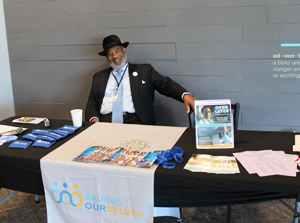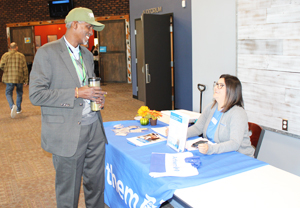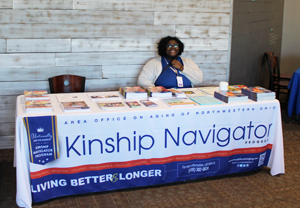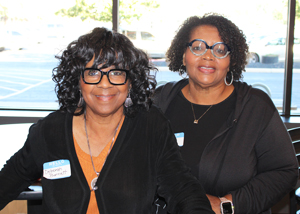
The Truth Staff
On Wednesday, October 11, Neighborhood Health Association (NHA) held a free workshop for grandparents and kinship caregivers raising children. “Superheroes Need Support, Too” was the title of the resource workshop held at the Cedar Creek Church South Campus from 9:00 a.m. to 1:00 p.m.
During the workshop, representatives from local support agencies, including the Area Office on Aging, Lucas County Children Services and Nami Greater Toledo, led working sessions on a variety of topics, letting attendees know what resources are available through their organizations and how to best access those resources.
Sessions included topics such as self-care, community benefit support services, the Kinship Navigator Program, mental and physical health care and social services.
“When children are in need – and someone known to them steps in – it has a huge impact on positive outcomes,” said Doni Miller, CEO of NHA. “For those who are caring for adults, techniques on caring for yourself while caring for another are particularly important to reduce negative health outcomes for the caregiver.”
According to statistics supplied by the state of Ohio, more than 227,000 children in the state under the age of 18 live in homes whose caregivers are relatives other than their parents and, across the nation, approximately 2.6 million children live with a kinship caregiver.
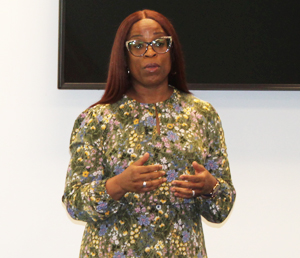
“Many resources are available to help caregivers who have stepped in to help with children and adults in need,” explained Monica Morales, project coordinator for NHA. “We developed this workshop to give caregivers one place to learn about many different types of help available to them. It’s about supporting someone who is giving of themselves.”
The keynote speaker for the event was Judge Connie Zemmelman of the Lucas County Juvenile Court. Judge Zemmelman, who has served on the bench since 2007 is well known for her extensive knowledge about human trafficking of juveniles. She co-authored the Safe Harbor Act to ensure that trafficked children are treated as victims not criminals and can access medical care, safe housing, remedial education and counseling services.
Zemmelman explained to her audience the difference between the several types of child custody that caregivers should anticipate having to choose or apply for given the family situation that children can face. She also described the steps that caregivers should take in order to achieve the goal of gaining the responsibility for raising children in their families.
There are three possible outcomes when children are at risk and agencies such as Lucas County Children Services and the Lucas County Juvenile Court are involved, said Zemmelman.
First there is the possibility that reunification of parents with children will eventually happen. Second, legal custody to someone else, such as a relative, may occur. In this scenario, parents still have residual rights and obligations – visitation, child support and knowledge of the child or children’s activities.
The third possibility, said Zemmelman, is permanent custody, which results in the total termination of parental rights. In such a case, custody is granted to LCCS which will make the call on placement. This process can take up to two years and Zemmelman advised potential caregivers to “get in on the ground floor” so kids are not lost to those outside the family.
A panel discussion followed Judge Zemmelman’s presentation. The panelists were Monica Morales; Vinny Riccardi, CCJS-MAC; Derricka Cunningham, RN; Kymberly Pullom, LSW; Marsha Rose, LSW.
Morales is a project coordinator for NHA and spoke from the experience of having been raised, along with her siblings.
Riccardi is executive director of the Believe Center and executive director of Youth Community Connections. He shared experiences and perspectives of being a caregiver navigating through the challenges kinship families experience.
Cunningham, a community health nurse with NHA, discussed health care and social services available to kinship families through NHA.
Pullom, a therapist with UChange Counseling and Consulting, described mental health stigma and the importance of mental and emotional self-care for the caregiver.
Rose, a supervisor with Kinship Navigator Program of the Area Office on Aging, talked about AOoA’s Kinship Navigator Program.

